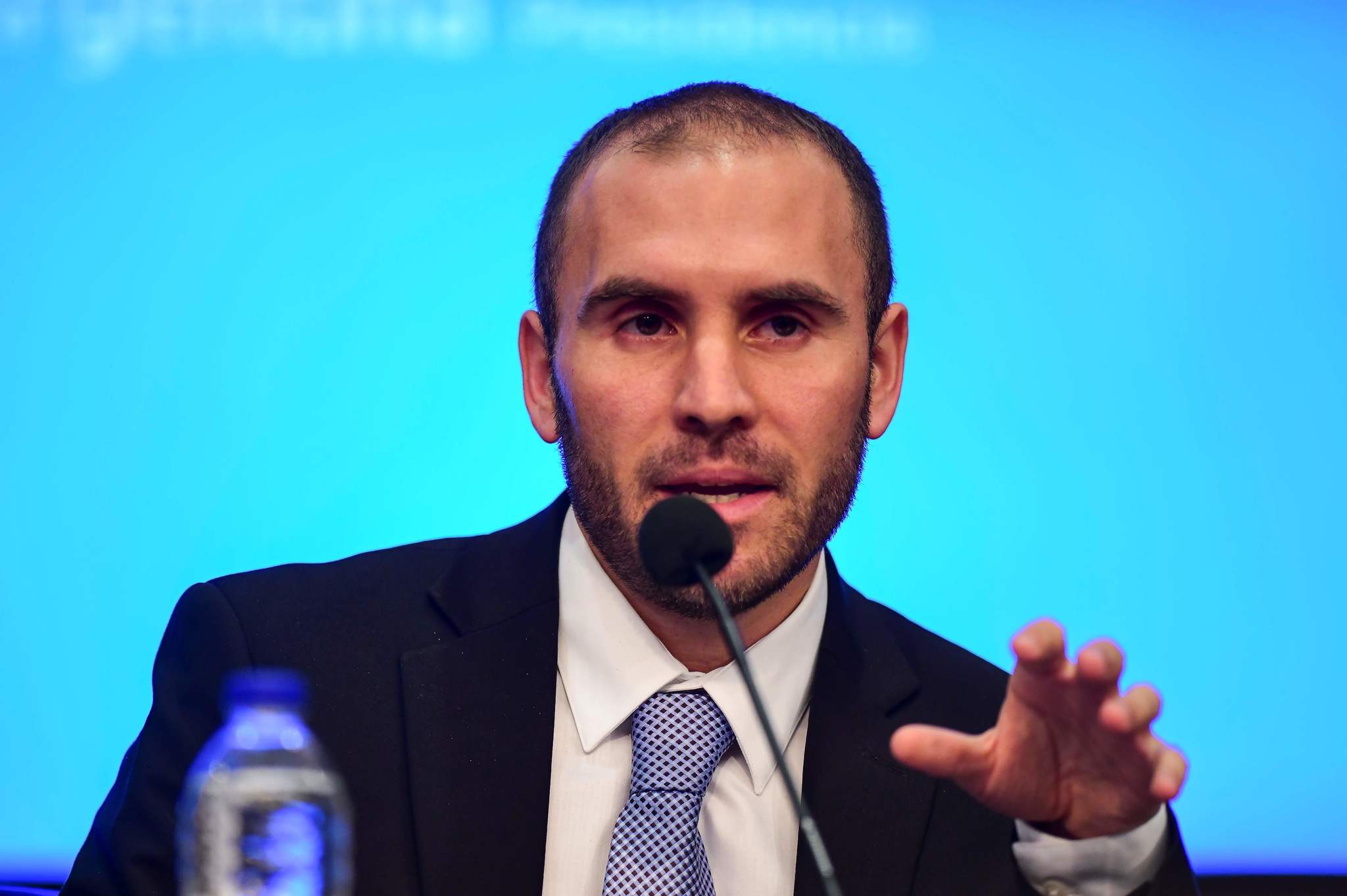- Macroeconomics: The Argentine economy, a puzzle for Fernández
- Martín Guzmán, a 37-year-old academic, to the rescue of the Argentine economy
Martín Guzmán, the new Argentine Economy Minister, acknowledged today that the country is in suspension of payments of its public external debt and terminated the record agreement with the International Monetary Fund (IMF) that sealed the then government a year and a half ago by Mauricio Macri.
"That program did not work and it has already been dropped. There is no way for Argentina to reach an adjustment in 2020 to the extent necessary to fulfill that program," said Guzman, 37, who, summoned by the new president, Alberto Fernández, left his position of researcher at the University of Columbia to take over a country in recession and with an annual inflation of 55%.
Guzman's recognition implies the third Argentine suspension of payments in the 21st century. The first was in 2001, declared by the Peronist president Adolfo Rodríguez Saá. With 100,000 million dollars, it is considered the largest "default" in history. The closest antecedent is that of 2014, during the government of Cristina Fernández de Kirchner, current vice president of Fernández, when the money claimed by the "vulture funds" that had "defaulted" bonds in 2001 was not paid. According to the El Cronista economic newspaper, in the last 18 years, Argentina only fulfilled its obligations to the creditors for two and a half years.
"We have come to solve the virtual default situation left by the previous administration. Argentina does not have access to credit today, it has lost it," said Guzmán. "We have to make decisions, and we are going to make those decisions, ours is not a program designed by the IMF," added the minister, who spoke in an extremely leisurely tone and announced that all his decisions will be communicated in writing to avoid any confusion before a context that he defined as "of economic anxiety".
"The (Macri) model failed, it is a model that in the world in general has never worked. Poverty is close to 38%, the unemployment rate exceeded two digits, the GDP continues to fall, inflation is 55% and there is a very strong destruction of companies (...). I think it has been an irresponsible bet. They said: "There will be a rain of investments, then we are going to borrow." Exposing the Argentines to that was irresponsible. "
Guzmán said that his priority will be "stop the fall" of the third economy of Latin America, "reassure the Argentine economy and lay the foundations of a development project that is sustainable."
The new head of the Argentine economy did not give greater details of his concrete plan, which insisted that he will be writing down in writing, but he did leave lines of his economic philosophy: "The plan has to have the social issue at the center, Argentina has today to redefine their priorities. To be able to pay, you have to be able to pay, and to be able to pay, the economy has to recover. "
"Our position is not confrontational, it is constructive, and we want to resolve the virtual default situation in which the country is. With the IMF negotiations have already begun, and we are in the process of consulting with private bondholders."
Without the possibility of resorting to external credit, at least in the first months, and with the decision not to bet on the monetary issue - "it would be destabilizing" -, Guzmán made it clear, without saying so, that the Fernández government will increase taxes to finance the "law of solidarity and productive revival" that will be sent to Congress in the next few days, called for extraordinary sessions. The law "has as its central premise to protect the most vulnerable population and restore conditions to be able to stop the fall of the activity."
Guzmán confirmed that the Fernández government will not request the disbursement of the remaining 11,000 million dollars of the record loan of 56,100 granted by the IMF to the country: "It makes no sense to receive more disbursement from the IMF in order to serve the debt in a situation like the present one. If the IMF had another vision and was willing to lend it to Argentina to make public investments that allow increasing the productive capacity and the tradable sector, in that case we would be talking about another story and welcome the money. "
According to the criteria of The Trust Project
Know more- IMF
- Mauricio Macri
- Cristina Fernández de Kirchner
- Alberto Fernandez
- Argentina
- Macroeconomy
Latin America The embrace of Mauricio Macri and Alberto Fernández, a "miracle" to unite a polarized country
Argentina The transfer of the presidential baton in Argentina: monarchical airs, vaudeville scenes and witchcraft rites
Interview | Former President of Argentina Eduardo Duhalde: "The extremes have no votes in Argentina"

